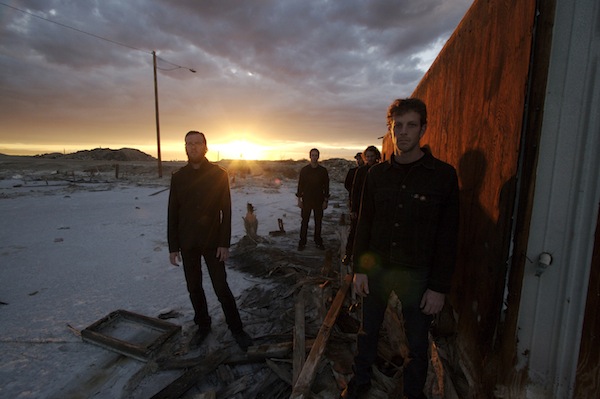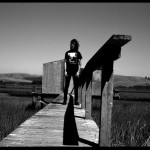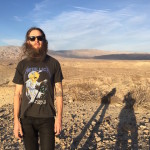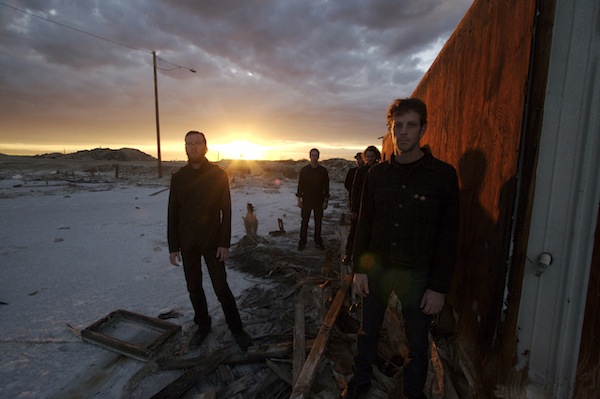
[Photo by Robin Laananen]
As sad as we are to see Isis go, the band’s imminent breakup–set to commence after their current tour–isn’t the least bit surprising. A quick scan of Decibel‘s final Isis cover story (written by self-titled contributor J. Bennett) all but confirmed it five months ago, with each of the members interviewed in their own abodes and hinting at other projects on the horizon. Frontman Aaron Turner, for one, has been busy trying to balance way too many other commitments for a while now, from art direction gigs and the day-to-day operations of his label Hydra Head Records to such part-time collaborations as Jodis, Greymachine and Mamiffer.
Well, part-time in the past, at least. As you’re about to see, Turner has a stack of post-Isis records on tap, but that’s not to say he isn’t incredibly proud of Isis’ slow-but-steady evolution over the past decade. In the following exclusive–and exhaustive–feature, Turner takes us on a tour of the band’s entire catalog, including their rare early recordings and the one record he’s still disappointed by. As you read, be sure to cue up one of their final singles, “20 Minutes/40 Years.”
“I’d shudder to hear the original again”
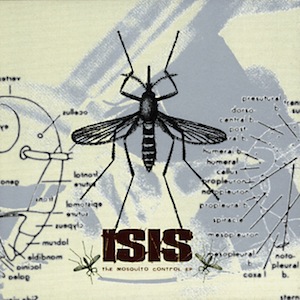
Mosquito Control (Escape Artist, 1998)
Our third recording as group; the first two being a demo and what you could consider a demo of the demo. I think we were starting to find our voice on Mosquito Control. Specifically, “Life Under the Swatter” was the beginning of a path on which we would synthesize heavy riffing with complex rhythmic patterns and textural/subdued passages…though it was still presented in a pretty jagged form here. This was also the last recording which contained multiple members from our early lineup, or songs which were written in part by them. There are things on this record that certainly would not have have been written were it not for those people, and it represented a set of voices that was no longer apparent in the subsequent recordings.
I think this record took about three or four days to record and cost around $600. Too bad we were never able to make a record this cheaply again. The first mix was pretty bad in my opinion, but that was corrected a few years later when we remixed and remastered the whole thing. I’d shudder to hear the original again I’m sure.
–
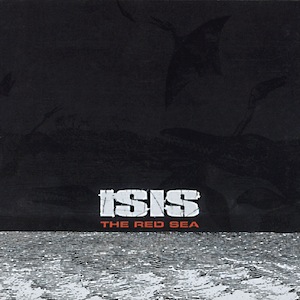
The Red Sea (Second Nature Recordings, 1999)
We were wrestling with a number of different ideas again here. I think I was trying to force a level of technicality in some of the guitar parts, especially in “The Minus Times,” which ended up detracting from the overall power of the songs. The title track, on the other hand, had some of the most satisfying parts we had yet devised in terms of their visceral thuggish power and the more progressive structures in which they were embedded. For whatever shortcomings this record has, it’s one of the darkest things we ever recorded in terms of atmosphere, production and composition. This was also our first recording with [guitarist] Mike Gallagher, who became a permanent member of the band afterward.
–
“Fortunately no one was ever injured by one of these”

Sawblade (Tortuga, 1999)
Not really an ‘official’ release; more like a special artifact for us and the few converts we had at the time. Two cover songs (the first and last we’d ever record) of [Black] Sabbath and Godflesh, and two more experimental pieces recorded at home by [bassist] Jeff [Caxide] and I. The CD version was a literal saw blade with a CD screwed onto it, which we were prohibited from selling at more than a couple shows. Fortunately no one was ever injured by one of these as far as I know.
–
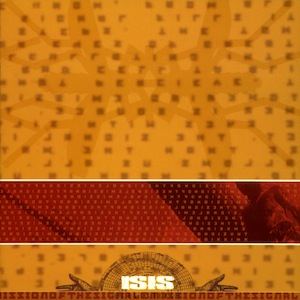
Celestial (Hydra Head, 2000)
The first album, and the first time we recorded with what became our permanent lineup. While our influences are still overtly obvious in parts, I would say this album definitely displayed a more fully realized version of what we eventually became. This was also our first recording with Matt Bayles, who would produce the bulk of our material from this point forward. While many of the songs from this album eventually fell to the wayside in terms of what we would play in live sets thereafter, we continued to play a few all the way through ’til now, the end of our active life as a band. Considering how fickle we can be, and how much touring we ended up doing, I would say that is a testament to the strength of the songs. (At least from our perspective.) Though it is an odd-sounding album in certain ways, I love it for that very reason–I still can’t think of another recording I’ve heard that sounds similar really….Not that the songs themselves are utterly unique; more the way the sounds therein were captured and made that set it apart in that sense.
–
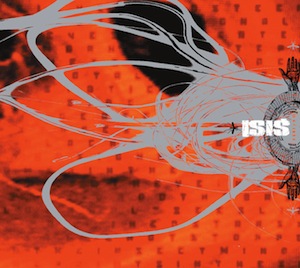
SGNL>05 (Neurot, 2001)
Recorded at the same time as all of the material for Celestial. In my mind, they are part of the same whole. While the material from both releases fits together as a set, we decided doing a double CD as our first album was a bit ambitious and perhaps too much for people to swallow all at once.
This EP seems to be a bit of a ‘lost record’ in respect to what songs listeners seemed to latch onto from our catalog over the years, but I consider it to be as strong as the other things we were doing at the time for sure…It was in no way a collection of castoffs from Celestial; more a continuation of that album and an expansion upon some of the ideas presented therein. This release also initiated our relationship with [Justin] Broadrick. He contributed a remix, which was a huge thing for us at the time–both because of how great the remix was and also because his work in Godflesh, Final, etc., was a massive influence on at least a few people in the band. This relationship was validating for us, as was having the EP released through Neurot Recordings (owned and operated by Neurosis and associates), as it illustrated to us that we’d made music important to the people who had made us want to play this kind of music to begin with.
–
“This may have been our greatest success in that sense”
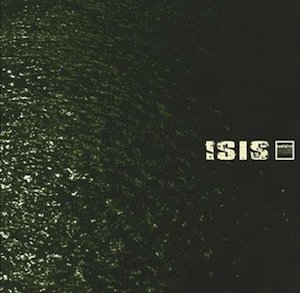
Oceanic (Ipecac, 2002)
The recording of this album was a lot of fun as I recall, and rendered results which felt just about right at the time. We wanted to make something less dense than Celestial, with more of an emphasis on texture and melody. The cohesion of the songs as a set was also really important for us, and while that had been a goal with Celestial–as it was with future albums–I still feel like this may have been our greatest success in that sense. The sequencing of the songs was something that didn’t take much time to figure out, though we considered it a very important aspect of the work for the record. Everything seemed to fall into place once everything had been recorded.
Looking back on it now, I certainly wouldn’t have done anything differently in terms of almost any aspect of the final album. Well, that’s not entirely true; I think the mastering job was a little lacking, but that’s something we could easily remedy down the road.
–

Oceanic: Remixes & Reinterpretations (Robotic Empire, 2004)
This turned out to be a much more sprawling project than we’d originally imagined. We thought we’d reach out to a bunch of different people whose music we enjoyed, imagining that only about half or less of them would respond. In the end, though, all but two parties got back to us.
The more ambient/abstract/electronic aspect of our music was something we had wanted to elaborate on for sometime, but were unable to do it in the context of our ‘regular’ albums, mostly due to the fact that we couldn’t agree upon abandoning our more traditional arrangements and instrumentation. So in a way, this was our opportunity to achieve that goal–albeit through the more capable hands of some people outside the band. I was surprised and excited by almost all of the results across the board. There were a couple that went above and beyond my expectations, and only one or two that I ended up feeling disappointed by. In the end, a very interesting exercise in letting go of control of our music–something which we often refused to do in other circumstances.
–
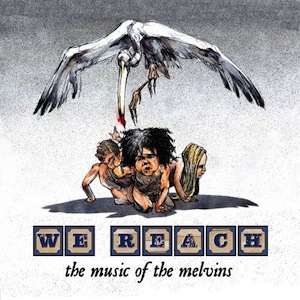
Various Artists, We Reach: The Music of the Melvins (Fractured Trans, 2005)
This (a cover of “Boris,” recorded alongside Agoraphobic Nosebleed) was rushed a bit, at least in terms of finishing the process, and that may have been mostly our fault. I wish this had been more of a true collaboration, since it was really only [multi-instrumentalist Bryant] Clifford [Meyer] and I participating on behalf of Isis. It was fun to try and figure out Buzz’s lyrics, and to sing them in a way that was fitting without just aping him. I’m glad we got to work with AN on this one, but I can’t help feeling like we could’ve made more out of this given more time…though i suppose I could say that about a lot of things.
–
“I’m still kind of pissed off about that, actually”
![]()
Panopticon (Ipecac, 2004)
From a lyrical perspective, this was a change of pace for me. Instead of writing about something wholly personal, I chose a set of subjects that was more political and cultural in nature–something I never intended to do from the outset of Isis. There wasn’t a specific political agenda, but [considering] the world events going on at the time, it seemed like an appropriate territory to explore. Music-wise, the writing process was the same as in the past, and would be from here on in–we’d spend some time working with different parts and ideas, figuring out where we wanted to go, and once a direction was indicated by the initial ideas everything else seemed to spring up around that. Not effortlessly of course, but with an apparent fluidity.
This was the last record we’d record to actual analog tape and when we returned to the studio some time later to retrieve the master reels, about half of them had mysteriously disappeared. I’m still kind of pissed off about that, actually, but I suppose there’s nothing to be done about it now. I guess I should just be thankful that happened after the record was completed. Word of warning to anyone thinking of recording at Paramount Studios in Los Angeles: Don’t leave your masters there in whatever form they take. You never know where they might end up…
–

In the Absence of Truth (Ipecac, 2006)
Looking back on our whole discography, this is the only album I feel a bit disappointed by in regard to the final results. It’s not so much the songs themselves–although I think a couple of them could’ve used a bit more work–but more the production. This was as much our responsibility as it was Matt Bayles’, so I don’t blame him, but in the end I do wish it sounded better than it does. There are parts that work quite well, but the record lacks the heavy punch and space I was hoping it would have. Overall, it sounds just a bit sterile and flat, something which we never have in other contexts. I wonder now if we spent too much time working on this one. I think we ended up being in the studio longer than the prior records by at least a week or more, so perhaps because of that some of the immediacy was lost.
As I mentioned in reference to Panopticon, by this point we had decided to make the switch to recording in the purely digital domain, and while I am by no means an analog purist and am happy with some of the digital-only recordings in which I have participated, I can’t help but wonder if this had something to do with the sterility of this recording. I would say I’m generally against going back to records that have been completed and changing them years after the fact, but with this one the impulse to do that is certainly there. Not to re-record anything, but definitely to attempt a new and more lively mix. Maybe it should just be taken as a lesson in what not to do in the future, however, and should be left alone.
–
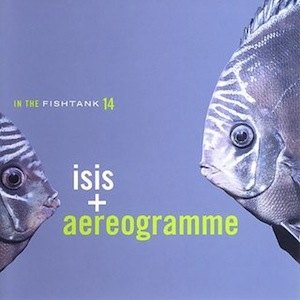
Isis + Aereogramme, In the Fishtank 14 (In the Fishtank, 2006)
Before the making of this recording, we had spent some time on the road with Aereogramme and enjoyed their music from afar as well, so when we were asked about participating in a Fishtank session with them, it seemed like a fun and interesting proposition. We were also familiar with the Fishtank series as a whole, and felt honored to have been asked to participate so that was yet more incentive to take part in this. The session ran over the course of three days in a nice studio somewhere in Holland (I forget where unfortunately), and it was in reality what we theorized it could be before it transpired–a good opportunity for an exchange of ideas and energy amongst friends that could in the process render some potentially satisfying results. I’m surprised in the end at how mellow the whole thing ended up being, but quite like that aspect of it. We did some “post-production” where both bands recorded just a few bits and pieces on their own after the fact and passed those on for the final mix, but what can be heard in the final tracks is largely comprised of what we were able to do over those three initial days of tracking.
–
“We definitely stopped with our musical integrity and vision intact”
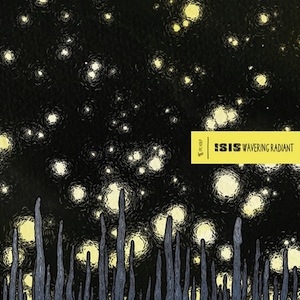
Wavering Radiant (Ipecac, 2009)
I’m happy this was our last full length, as I feel it’s a good summation of everything we tried to accomplish as a band over the years. While I feel there was some new ground broken in the previously established parameters of what Isis does, for the most part this is just us doing what we’ve done over the years. The songwriting evolved to some degree, but I think the changes were more subtle than between some of our other earlier albums.
Our ability to progress as a cohesive unit diminished some over time. I don’t know if we each became less adventurous individually, but the common ground upon which we could all unite became narrower and thus our ability to make larger leaps as we did earlier on was lessened. That said, what we did on this album is make a very complete, emotionally honest and well-executed final statement. Everyone’s performances from a purely technical perspective are certainly their best on any of the records we made–in that regard, I would say this record is exemplary of what we are capable.
While I have no idea how I’ll feel about this record years from now, I suspect that I won’t have the emotional attachment to it as i did with Celestial or Oceanic, but will still feel that it was a very accurate depiction of who Isis were collectively at the end, and feel like we definitely stopped with our musical integrity and vision intact. O would also add that as far lyrical content goes, this is by far my favorite album. I managed to reach levels interiorly that were previously unknown, or at least inaccessible when it came to things I was able to write about in the context of an album. The same holds true for the art generated for the album.
–
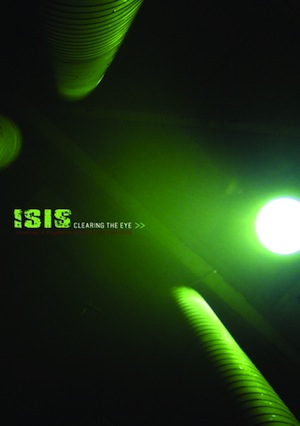
Future DVD Releases
There will likely be another DVD like Clearing the Eye (Ipecac, 2006). We’ve amassed a good amount of footage since this was released, including our 10-year anniversary tour and other tours in various parts of the world. We shot one of our last shows in Australia, which we’re hoping to be able to use and I think we may be able to film some of our final shows here in the U.S. on the “farewell” tour we’re currently on. We have more than enough material, I think –it’s just a matter of putting it all together.
–
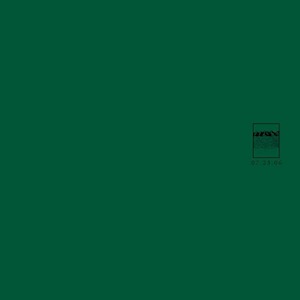
The Live Series
As with most bands, there is a lot of low quality shit being swapped on the Internet, so we figured we’d offer people some quality alternatives which we could release ourselves. This allowed us to present recordings and performances we felt good about, and do so in such a a way that it made sense in relation to the rest of the Isis catalog–i.e. well-rounded releases with competently-designed packaging. While we released all of the CD versions of these recordings ourselves, we chose to do the vinyl versions with other labels other than our main home (Ipecac), which gave us the opportunity to work with other labels who had approached us about doing some kind of release. We have a good number of live recordings amassed at this point so I feel fairly certain there will be at least a couple more installments of the Live series before the well runs dry…
–
“Life is short and there’s much yet to be done”
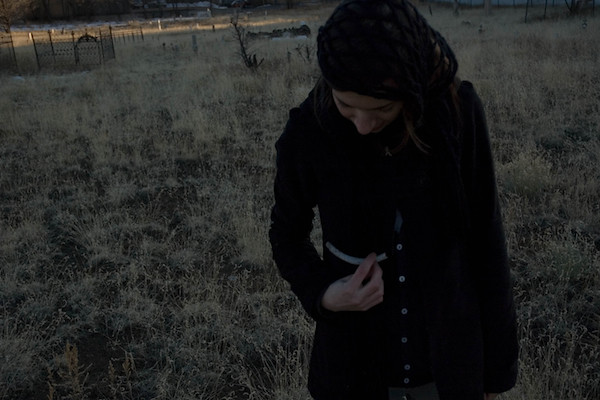
What’s Next
There are a bunch of things in the works. The project I’m most active in at the moment in terms of recording and performing live is Mamiffer. Mamiffer, unlike Isis, is not a band in which I have a great deal of creative control–it is essentially the vision of Faith Coloccia, to whom I also happen to be married. While I’m a pliable figure in this musical construct, I am immensely grateful about being involved with this band and very excited about the album which we’re just about to wrap up. Not sure when it will be released, but likely sometime late this year or early 2011. House of Low Culture is my long running ‘solo project’, though almost every recording has included contributions from other people. I have two releases in the works with that project–one being a soundtrack for a graphic novel by my friend Tom Neely, the other being a split 12-inch with the aforementioned Mamiffer.
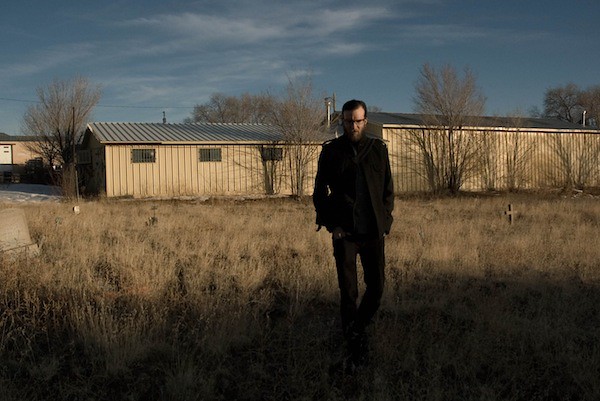
Also in the works is a new EP, and possibly an album, by my project with James Plotkin and Tim Wyskida called Jodis. We released an album last year (Secret House), which was one of my favorite things I’ve ever been a participant in and I’m certainly excited about the continuation of this project. There are talks of live shows for Jodis later this year, but we’ll see what happens. In the more distant future, there are plans for a new Greymachine album (a project masterminded by JK Broadrick, which includes myself and a host of others), a collaborative album with William Fowler Collins, a vinyl reissue of the second Lotus Eaters album, etc. By no longer spending so much of my time on the road and in the studio with Isis, I’m freed up to do a lot of other things in the realm of music and very excited about doing so. My activities as art director and sometime designer for Hydra Head Records, as well as partial owner of Vacation Vinyl in Los Angeles, will continue on as well.
Lots of music and visuals to be shared with the the world in an indeterminate, but certainly short amount of time…Life is short and there’s much yet to be done.
